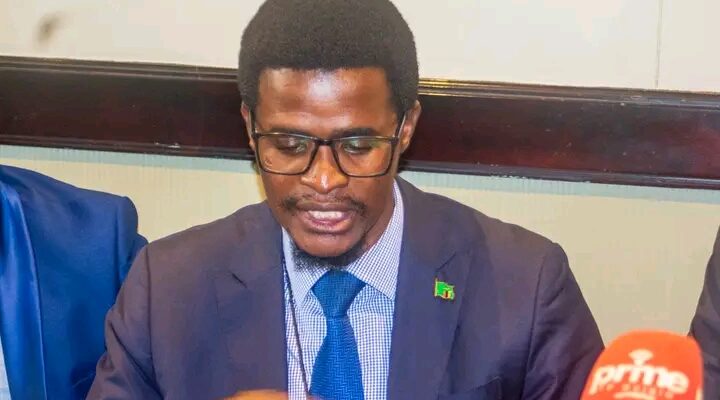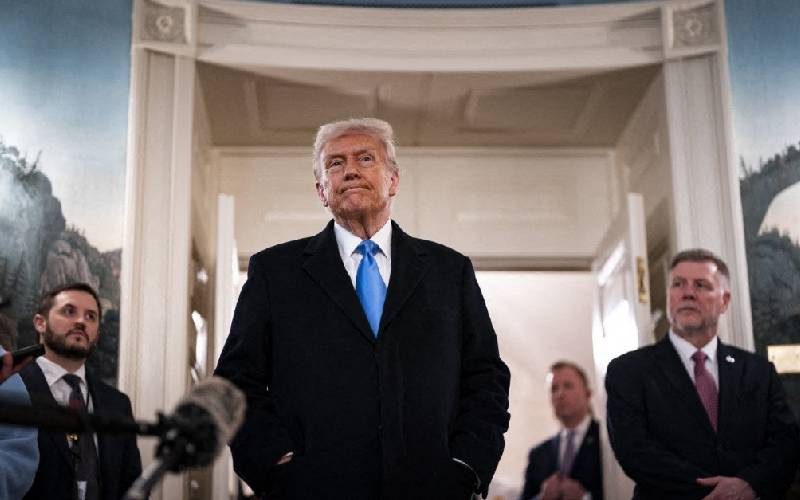Privacy Bombshell: Meta Settles Massive $32.8M Data Dispute Out of Court!

Meta, the parent company of prominent social media platforms Facebook and Instagram, is currently engaged in settlement negotiations with the Nigerian Data Protection Commission (NDPC). This development follows a substantial $32.8 million fine imposed on Meta in February 2025, stemming from alleged violations of the Nigerian Data Protection Act. The fine was a direct consequence of an NDPC investigation that concluded Meta had processed the personal data of Nigerians without obtaining proper consent, engaged in unapproved behavioral advertising, and breached cross-border data transfer regulations. Furthermore, the commission found fault with Meta for failing to file a compliance audit and for its handling of non-user data, issuing eight corrective orders in addition to the financial penalty.
Initially, Meta vehemently rejected the NDPC's decision, asserting that it had been denied a fair hearing. The company argued that it was not provided adequate notice or a sufficient opportunity to respond before the sanctions were imposed, claiming a violation of its constitutional right to due process. Consequently, Meta sought a court order to quash the NDPC's directives. The NDPC, however, countered by describing Meta's lawsuit as defective and incompetent, with its lawyers maintaining that Meta’s filings were inconsistent and attempting to introduce new claims that had already been ruled upon, which is impermissible under court rules.
This contentious legal dispute, which was expected to lead to a significant court ruling on preliminary objections, unexpectedly shifted towards dialogue. Lawyers representing both Meta and the NDPC announced that settlement negotiations were underway, with draft terms already circulated. They requested an adjournment to finalize talks. The presiding judge, recognizing the legal system's encouragement of friendly settlements, agreed to defer a decision and adjourned the case until October 31, 2025, to allow for either the adoption of a consent judgment or a final order.
The willingness of both parties to engage in settlement talks signifies a strategic shift. While the NDPC initially seemed hesitant, its participation acknowledges that negotiation could offer quicker and more convenient outcomes compared to a prolonged court battle. Similarly, Meta's readiness to negotiate reflects a desire to avoid long-term uncertainty within Nigeria, which represents one of Africa's largest and most crucial digital markets.
This case holds profound implications for Nigeria’s digital future, marking one of the biggest tests for the country's two-year-old Data Protection Act. Enacted in 2023, this legislation aims to empower data subjects by tightening requirements for companies operating in Nigeria, obliging them to safeguard user information, secure explicit consent, and submit compliance reports. The substantial fine against Meta, alongside a separate ₦766.2 million fine imposed on Multichoice Nigeria, underscores the NDPC's resolve to enforce data protection regulations stringently against both foreign and local entities.
For Nigeria, the settlement negotiations convey two critical messages. Firstly, they demonstrate that regulators are prepared to take a firm stand on data rights protection, even against multinational corporations. Secondly, they highlight that foreign tech companies cannot operate with impunity outside the domestic legal framework. This dynamic tension between enforcement and debate is likely to shape the trajectory of Nigeria’s digital economy, especially as internet penetration grows and data's value increases. A positive outcome, particularly if it includes stricter compliance requirements, could significantly boost consumer confidence, fostering greater participation in the digital economy's burgeoning sectors like e-commerce, fintech, and online services, where trust is paramount. Conversely, overly lenient settlements might raise questions about accountability for large corporations.
The outcome of this case will not only compel Meta to be more vigilant about compliance in Nigeria but also resonate across its broader operations throughout the African continent. As Africa's largest internet market, Nigeria often serves as an experimental ground for new policies and digital habits. A settlement binding Meta to stringent standards in Nigeria could thus create a ripple effect, potentially forcing the company to adopt similar, stronger protections in other African jurisdictions. Concurrently, the NDPC's adept handling of the case would bolster its image as a formidable regulator, demonstrating its capacity and resolve to sanction and bring major global businesses into compliance, thereby promoting more accountable investment within Nigeria's burgeoning tech sector by providing clearer regulatory models.
With both parties slated to return to court in late October, observers eagerly await whether they will reach a settlement or if the court will be compelled to deliver a ruling on the initial objections. Regardless of the immediate outcome, the case has already established a significant precedent for Nigeria’s approach to data privacy in an era where digital platforms exert an ever-increasing influence on daily life.
You may also like...
Trustee Uncovers 'Pervasive Fraud' in Startup Tricolor, Probes Ongoing

BlackRock Drops Staggering $40 Billion on Stealthy Data Center Innovator

Aligned Data Centers is reportedly poised for a monumental $40 billion acquisition by BlackRock Inc.'s Global Infrastruc...
Horror Unleashed: Synagogue Terrorist Screams 'Allahu Akbar' as Community Responds with Defiance

A terrorist attack on a Manchester synagogue during Yom Kippur claimed two lives and injured three, as perpetrator Jihad...
Zambian Democracy Under Scrutiny: Pressure Mounts for Transparent Constitutional Reforms

President Hakainde Hichilema has appointed an independent committee for Zambian constitutional amendments, drawing both ...
Africa on the Brink: End of AGOA Ignites Calls for Radical Trade Overhaul

The Africa Growth Opportunity Act (AGOA) has concluded after 25 years, ending duty-free access for African products to t...
Explosive Claims: Jonathan Accused of Lying on Buhari's Boko Haram Role

Former President Goodluck Jonathan discussed the complexity of the Boko Haram insurgency, advocating a holistic approach...
Nnamdi Kanu's Liberty: Governor Otti Promises Imminent Release

Abia State Governor, Alex Otti, expressed confidence that IPOB leader Nnamdi Kanu will soon be freed, citing ongoing eng...
Tems Makes History: First Nigerian Female Artist to Sell 10 Million Units in the U.S. — What It Mean

Tems becomes the first Nigerian female artist to sell over 10 million units in the U.S. Discover how her record-breaking...


